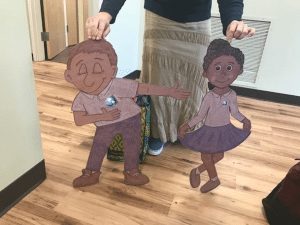How Gardening Enrichment Grows Independence in Montessori Curriculum
In many Montessori environments, enrichment activities are woven into the learning fabric to support the whole student. Among the most impactful of these is gardening. Whether children are planting seeds, harvesting vegetables, or composting food scraps, gardening offers real-world lessons in responsibility, science, and care. We believe gardening is about growing independence.
Why Gardening Belongs in a Montessori School
The Montessori philosophy emphasizes practical life skills, sensory engagement, and child-led exploration. Gardening aligns with all three. Children experience textures, smells, and sounds outdoors while learning the rhythms of the natural world. They also begin to understand their own impact on living things, a lesson in stewardship that builds both empathy and accountability.
We integrate gardening into our enrichment programming as part of our commitment to the Montessori trifecta: hands-on learning (Montessori), creativity and observation (Reggio Emilia), and STEAM (DaVinci Kids).
The Science of the Soil: Early STEAM Learning
Gardening gives young children an accessible entry point into science. When students water herbs or observe insects in the soil, they are engaging in early biology and environmental science. We encourage vocabulary like “photosynthesis,” “roots,” and “pollination” even in our Primary classrooms, giving language to experiences they’re already having.
In fact, studies show that experiential, hands-on science improves concept retention and engagement in young children. A study by the American Society for Horticultural Science found that gardening increased science achievement scores among preschoolers.
Montessori classrooms thrive when the curriculum is rooted in observation and experimentation, and gardening is a living laboratory.
Nurturing Independence Through Routine and Responsibility
One of the defining characteristics of Montessori education is fostering independence. Gardening helps support this as students take ownership of their garden beds or classroom plants. They learn to:
- Observe signs of growth
- Water and prune appropriately
- Work collaboratively during harvest
These aren’t chores in a Montessori environment, but meaningful work. A toddler carrying a watering can is developing coordination, focus, and a sense of pride. A preschooler checking for ripe tomatoes is learning patience, planning, and care.
The repetition of daily garden tasks also supports executive function development. As children remember to water or check soil levels, they build habits that strengthen memory, attention, and self-regulation.
Outdoor Classrooms: Expanding the Learning Environment
In MKU schools, outdoor space is considered an extension of the classroom. Gardening areas are prepared environments too, designed with intention. Tools are child-sized, beds are raised for accessibility, and materials are stored where children can reach them.
This Montessori-based setup allows children to move freely between indoor and outdoor work cycles, reinforcing the idea that learning doesn’t stop at the door. They may:
- Journal observations in the DaVinci Kids lab
- Read books about pollinators on the outdoor bench
- Sketch plants in their nature journals
This integration of science, literacy, and art supports the multi-sensory, interdisciplinary approach that defines MKU.
Social-Emotional Growth in the Garden
Working with living things teaches children empathy. They learn that their actions have consequences: overwatering can drown roots, neglect can wilt leaves. These lessons are especially powerful in the early years when emotional development is rapidly evolving.
Group gardening also promotes cooperation. Children take turns, share tools, and work together to complete tasks. For younger children in particular, gardening helps develop impulse control and communication.
Harvard’s Center on the Developing Child notes that social-emotional skills in early childhood are strong predictors of later academic success. Gardening builds these skills naturally, through authentic and joyful engagement.
How MKU Makes Gardening Meaningful
Our gardening enrichment is more than occasional planting. It is:
- Seasonal and Thematic: Aligned with our monthly Reggio-inspired themes
- Hands-On: Students measure, dig, plant, and taste
- Integrated: Tied to DaVinci Kids units like ecosystems, nutrition, and sustainability
- Age-Appropriate: Infants explore herbs through smell, toddlers help with watering, and primary students track plant growth in journals
Whether it’s planting sunflowers in spring or composting pumpkin seeds after fall cooking class, MKU students see the full cycle of life. This reinforces their role as active participants, not passive observers.
Going Beyond the Basics
Unlike many early childhood programs that relegate outdoor time to recess, MKU uses our outdoor environments as active learning spaces. Gardening is one of the many ways we bring the Montessori principle of “freedom within limits” to life.
Children have the freedom to choose gardening work during the day. But they are guided with clear responsibilities and real tools, and that’s what helps them build confidence.
Explore Our Classrooms In-Person
If you’re exploring a Montessori program that values real-world learning and whole-child development, we invite you to see our enrichment programs in action. Schedule a tour and discover how gardening and other hands-on activities can transform your child’s early education.


